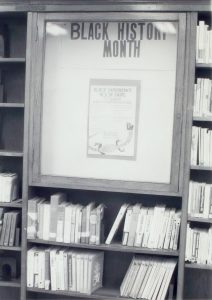Widgetized Section
Go to Admin » Appearance » Widgets » and move Gabfire Widget: Social into that MastheadOverlay zone
Empathy Takes Work
The views expressed are those of the author and do not necessarily reflect the views of ASPA as an organization.
By Antonio R. Renteria
August 7, 2023

“Black Fatigue” is an often-cited phrase when discussing the unseen or unconscious burdens that Black people and other people of color face even when well-meaning individuals care enough to learn more about the struggles facing those communities.
Writing for UC Berkeley’s Greater Good Newsletter, author and DEI consultant, Mary Frances-Winters writes:
“Believe what you hear from BIPOC employees. Do not rationalize or defend, sugarcoat the results, or, worse, dismiss the concerns all together. Acknowledge that your lived experiences may be very different and that you may not be able to completely empathize. Continue to listen and learn until you can really empathize. You cannot empathize if you do not know anything about the person or group with whom you wish to offer empathy. You can sympathize, which often leads to pity and patronization. Empathy takes work. When you can empathize, you will be more likely to take action. Do your own learning, not expecting BIPOC to be your teacher, as it can compound the emotional toll.”
The issue of BIPOC individuals being the educators of their own oppressed histories has been a given since those communities began to practice self-advocacy within the hegemony of the United States. It makes logical sense to us to hear those stories told from the perspective of those who lived through it, and, luckily for us, those professional historians and storytellers are a mere search and click away from being able to read and view their works and speeches.
In fact, very few members of these communities have ever openly consented to educating the masses about their individual or communities’ issues. This is not to say that those conversations can’t occur organically during the course of befriending someone, but it is better to assume that those topics constitute privately held beliefs of an individual unless otherwise stated.
Having to not only live through oppressive experiences but also answer questions about those experiences is exhausting, even for those who choose to educate others by relaying theirs and other’s stories of oppression. For those who haven’t made that conscious choice, being asked to give your take on race or systemic racism can feel like you are being asked to give THE definitive answer that is representative of the entire experience of a minority group. It is not fair nor equitable to expect one person to answer for an entire group of people.
I can recall seeing this very thing play out in a lecture I had in college. In a room of nearly 40 students, maybe 6 of us were Black or brown. The professor was making his point about the need for cultural sensitivity in governing different populations and then, as if on cue, called out one of the few Black students and asked them their opinion on his point. The student, apparently taken aback by the interjection, gave a half-hushed response in agreement. Now, some may say that college is the exact place to push for these kinds of discussions, as well as disagreements.
However, the professor has an uneven amount of knowledge on this subject, which makes his request for the student’s opinion questionable. Questionable in the sense that he likely wasn’t expecting the student to challenge his point, and, if the student did object in some manner, would have a response ready to defend his point. Instead, the student agreed, and the professor’s point was validated by a person of color, which was more than likely what he was looking for in that interaction.
At the time I didn’t think much of that interaction, other than I felt glad the professor didn’t single me out. Aside from that relief, I should have realized that I had escaped from being tokenized by a well-meaning, yet unaware authority figure.
Black Fatigue isn’t only caused by the maliciousness of strangers, but can be exasperated by well-meaning friends and allies, as well. What is important for those without lived experiences of oppression to remember is that there are plenty of authors and communicators that have made it their mission in life to speak and write on these topics. I make it a point to read and engage with these kinds of books and articles often and invite you all to do the same, because empathy takes work.
To learn more about Black History and for conversations around the topic of Black Fatigue please visit the Elinor Williams Tea Talks Series seminar titled “Shades of Black: Connected by Color, Culture, and Community.” That week’s talk will feature many additional topics related to Black Fatigue and the expectation that Black individuals are all academics of their own oppression.
If you would like to learn more about the Tea Talks Series, please visit: https://blackheritagetrailnh.org/elinor-williams-hooker-tea-talks-2023/
Author: Antonio R. Renteria has served as the Civil Rights Coordinator and Diversity, Equity, and Inclusion Officer at the Mendocino County Department of Social Services in January of 2022. Antonio graduated with a master’s degree in public administration from Sonoma State University in 2019, and with a degree in Political Science from the University of Notre Dame, du Lac in 2013. Antonio was born and raised in Mendocino County and takes great pride in returning to serve the very community that gave him so much.


James Nordin, DPA
August 7, 2023 at 3:27 pm
Antonio,
Another excellent piece!!
I am so proud to know you! You give my heart joy.